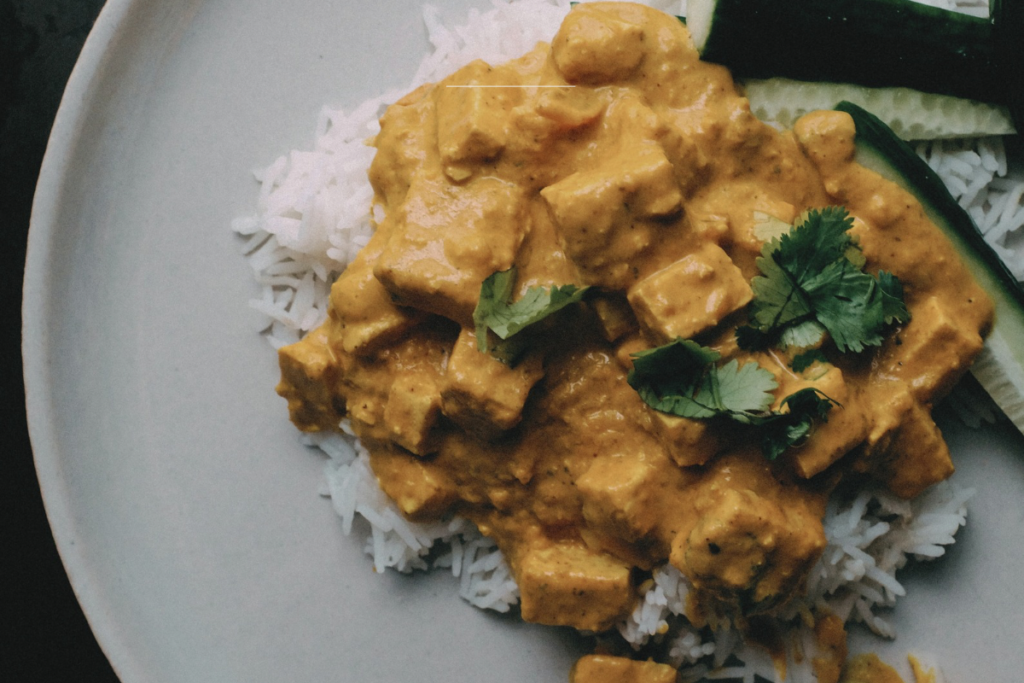
Are you curious about all the different meatless diets you keep hearing about? Whether you’re thinking about reducing your meat intake or just want to know what’s out there, it can be tricky to figure out the differences between vegetarian, vegan, flexitarian, and more.
But don’t worry— by the end of this article, you’ll have a clearer understanding of the most popular meatless diets, and you might even find one that suits your lifestyle, whether you’re looking to make a change or simply learn something new.
What exactly is a meatless diet?
At its core, a meatless diet excludes meat, but there’s a lot of flexibility within that definition.
Some diets cut out all animal products, while others still allow for things like dairy, eggs, or even seafood.
What they all have in common is a focus on plant-based foods like fruits, vegetables, grains, nuts, seeds, and legumes.
These diets have become increasingly popular for health benefits, ethical reasons, and sustainability concerns.
Why are meatless diets on the rise?
Before we list some of the most popular meatless diets, let’s have a look at the reasons why these diets are becoming popular. It can pretty much be broken down into three areas: animal welfare, health, and sustainability.
Animal welfare
Many people are making the switch after learning about the conditions in factory farms and the impact of the meat industry on animals.
Health benefits
From lowering cholesterol to improving digestion, plant-based diets are linked to a wide range of health benefits.
Sustainability
Meatless diets tend to have a lower environmental impact, as they require fewer natural resources to produce. This makes them a great option for people concerned about climate change and sustainability.
Seven popular meatless diets explained
Whether you’re cutting back on meat for your health, the environment, or the animals, the sheer number of meatless diets out there can feel overwhelming and confusing.
Here’s a breakdown of the top seven meatless diets, including what they involve, why people choose them, and some key considerations.
Vegetarian
A vegetarian diet excludes meat but allows for animal by-products like dairy and eggs.
Many vegetarians choose this diet for ethical reasons, health benefits, or a combination of the two. It’s a great option if you want to reduce your meat consumption without cutting out all animal products.
Vegetarian diets are rich in fibre, vitamins, and antioxidants, which can improve heart health and digestion.
They’re also easier to follow than stricter diets like veganism.
Vegan
A vegan diet excludes all animal products, including meat, dairy, eggs, and even honey.
Veganism is often chosen for ethical reasons, particularly around animal welfare.
Many vegans are also motivated by environmental concerns, as plant-based diets typically have a smaller carbon footprint than meat-based diets.
Vegan diets have been linked to lower cholesterol, improved heart health, and reduced risk of certain cancers. However, it’s essential to ensure you’re getting enough nutrients like B12, iron, and protein.
Possible Difficulty: Veganism can be restrictive and may require more meal planning, especially when eating out.

Flexitarian
A mostly vegetarian diet that occasionally includes meat or fish.
This diet offers flexibility, making it easier to adopt than stricter diets. It’s ideal for people who want to reduce their meat consumption but aren’t ready to give it up entirely.
The flexitarian diet has been associated with weight loss, improved metabolic health, and lower rates of heart disease and diabetes.
Possible Difficulty: People transitioning into plant-based eating or those who want to maintain flexibility without feeling restricted.
Raw vegan
A type of vegan diet where all food is consumed raw or minimally heated to preserve nutrients.
Raw vegans believe that cooking food diminishes its nutritional value and that eating raw ensures maximum health benefits.
Some raw food proponents report better digestion, clearer skin, and higher energy levels.
Potential Difficulty: It can be hard to get the necessary calories and nutrients from a raw vegan diet alone, and it requires a lot of preparation.
Pescatarian
A pescatarian diet excludes meat but allows for fish and seafood.
It’s a balanced option for those who want to follow a plant-based diet while still getting the benefits of omega-3 fatty acids found in fish.
Pescatarians can enjoy the heart-health benefits of omega-3s, which are great for reducing inflammation and supporting brain health.
Possible Difficulty: While it’s less environmentally taxing than a traditional meat-heavy diet, overfishing can be an issue for sustainability-conscious eaters.

Whole-food plant-based
This is a diet based on whole, unprocessed plant foods like fruits, vegetables, legumes, grains, nuts, and seeds.
This is a great option if you’re looking to avoid processed foods and focus on nutrient-dense, natural options.
Whole-food plant-based diets are known for supporting weight loss, improving heart health, and reducing the risk of chronic diseases like diabetes and hypertension.
Overall, the diet is less about restriction and more about choosing whole foods, making it easier to follow than other diets.
Fruitarian
The fruitarian is a highly restrictive diet consisting mostly of raw fruits, with some nuts and seeds.
Some people adopt this diet for ethical or spiritual reasons, believing that fruits are the most natural food for humans.
This diet suits people with a very specific set of ethical or health beliefs, it’s not a sustainable, balanced diet for most.
Possible concerns: While rich in vitamins, this diet lacks key nutrients like protein, fat, calcium, and B12, making it difficult to follow long-term without supplementation.
How to pick the right meatless diet for you
If you are researching the varied meatless diets because you are considering changing your diet, choosing the right one depends on several factors, including your health needs, ethical values, and lifestyle. Here are some things to consider:
Personal values: Are you more focused on animal welfare, sustainability, or personal health? Each diet has its strengths depending on your primary motivation.
Flexibility vs. commitment: If you’re not ready to go fully meat-free, flexitarian or pescatarian might be a good starting point. If you’re ready for a bigger commitment, vegan or whole-food plant-based could be the way to go.
Health needs: If you have specific dietary concerns (e.g., needing more omega-3s or avoiding processed foods), let that guide your decision. It’s also a good idea to consult a nutritionist, especially if you’re making drastic changes to your diet.
Remember, the best meatless diet for you is the one that fits your needs, lifestyle, and values. Whether you want to cut back on meat for health reasons, to support animal welfare, or to reduce your carbon footprint, there’s a diet out there for you. So, which one will you try?
Clearing up common myths about meatless diets
Here are a few myths that often create confusion about meatless diets—and the facts to set them straight.
Myth 1: You can’t get enough protein.
Reality: Plenty of plant-based foods are rich in protein, such as beans, lentils, quinoa, tofu, and tempeh. You can easily meet your protein needs without meat.
Myth 2: Meatless diets are too restrictive.
Reality: With the growing popularity of plant-based diets, there are now more options than ever. From plant-based burgers to dairy-free ice cream, eating meatless doesn’t mean giving up your favourite foods.
Myth 3: Meatless diets are boring
Reality: Plant-based diets can be incredibly diverse and flavourful. Think spicy lentil tacos, rich coconut curries, or even decadent vegan desserts.
Read more of our recent animal news and features
-
High-quality, healthy pet food is priority for pet parents: survey
As the cost-of-living crisis continues to impact households, Australian pet owners aren’t cutting the costs of their dog or cat’s…
-
Discover the cat treats that are great for pets and the planet!
☆ 𝙃𝙚𝙖𝙙 𝙩𝙤 𝙤𝙪𝙧 𝙨𝙤𝙘𝙞𝙖𝙡 𝙢𝙚𝙙𝙞𝙖 𝙥𝙖𝙜𝙚𝙨 𝙛𝙤𝙧 𝙮𝙤𝙪𝙧 𝙘𝙝𝙖𝙣𝙘𝙚 𝙩𝙤 𝙬𝙞𝙣 𝙖 𝙮𝙚𝙖𝙧’𝙨 𝙨𝙪𝙥𝙥𝙡𝙮 𝙤𝙛 𝘽𝙧𝙚𝙚𝙙𝙚𝙧’𝙨 𝘾𝙝𝙤𝙞𝙘𝙚 𝙘𝙖𝙩 𝙩𝙧𝙚𝙖𝙩𝙨!…
-
World Mental Health Day 2024: emotional benefits of pets
October 10 is World Mental Health Day 2024, a day that reminds us to focus on our emotional wellbeing –…
As the cost-of-living crisis continues to impact households, Australian pet owners aren’t cutting the costs of their dog or cat’s…
Continue Reading High-quality, healthy pet food is priority for pet parents: survey
☆ 𝙃𝙚𝙖𝙙 𝙩𝙤 𝙤𝙪𝙧 𝙨𝙤𝙘𝙞𝙖𝙡 𝙢𝙚𝙙𝙞𝙖 𝙥𝙖𝙜𝙚𝙨 𝙛𝙤𝙧 𝙮𝙤𝙪𝙧 𝙘𝙝𝙖𝙣𝙘𝙚 𝙩𝙤 𝙬𝙞𝙣 𝙖 𝙮𝙚𝙖𝙧’𝙨 𝙨𝙪𝙥𝙥𝙡𝙮 𝙤𝙛 𝘽𝙧𝙚𝙚𝙙𝙚𝙧’𝙨 𝘾𝙝𝙤𝙞𝙘𝙚 𝙘𝙖𝙩 𝙩𝙧𝙚𝙖𝙩𝙨!…
Continue Reading Discover the cat treats that are great for pets and the planet!
October 10 is World Mental Health Day 2024, a day that reminds us to focus on our emotional wellbeing -…
Continue Reading World Mental Health Day 2024: emotional benefits of pets
World Animal Day 2024 is the perfect occasion for animal lovers to come together and champion the cause of animal…
Continue Reading World Animal Day 2024: How to advocate for all animals
The last week of September is National Dog Week, a popular time for dog lovers across the globe to celebrate…
Continue Reading National Dog Week 2024: celebrating our canine companions
As the Australian spring gets underway, so does the infamous magpie swooping season, the time of year that leaves walkers,…
Continue Reading Magpie swooping season: how to protect yourself







